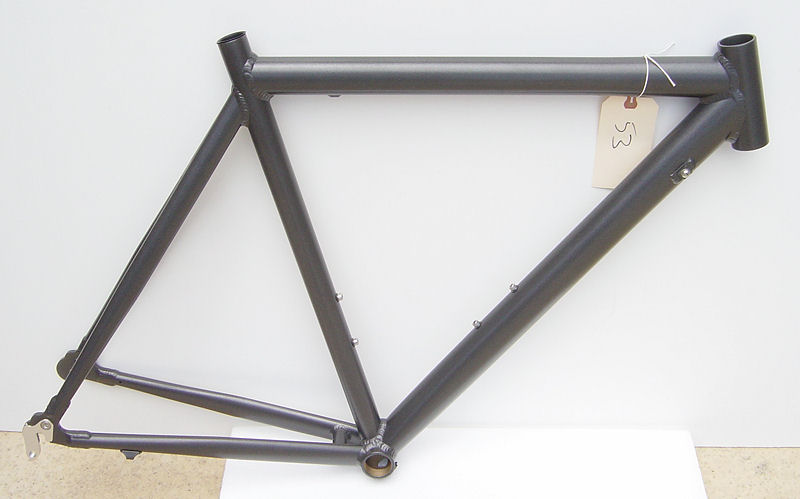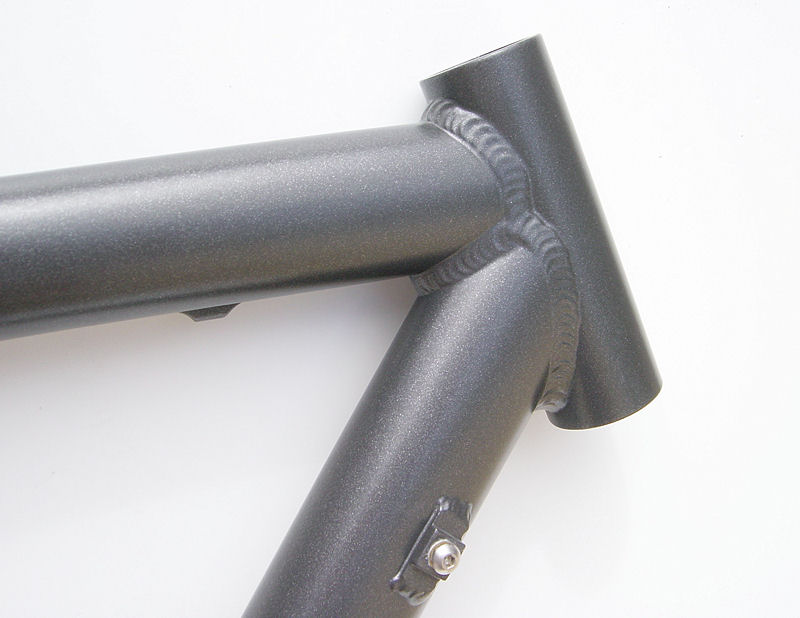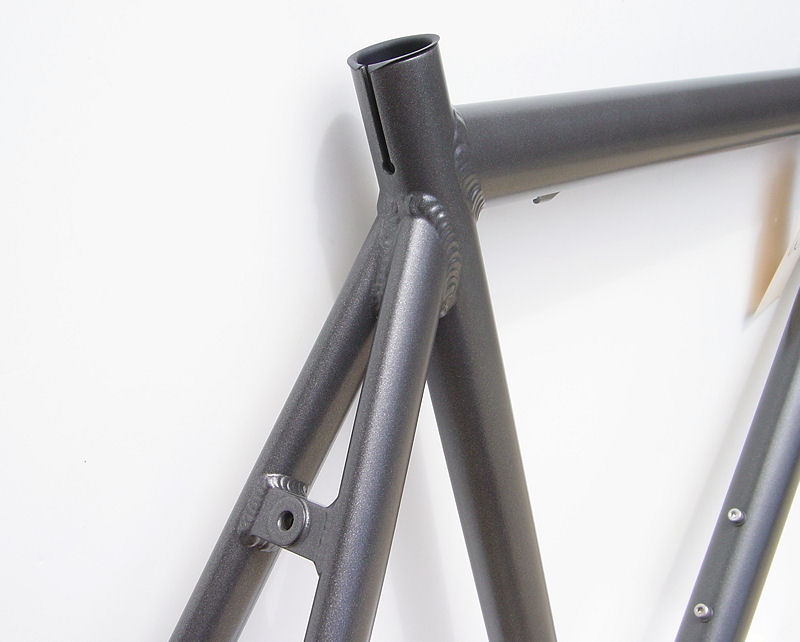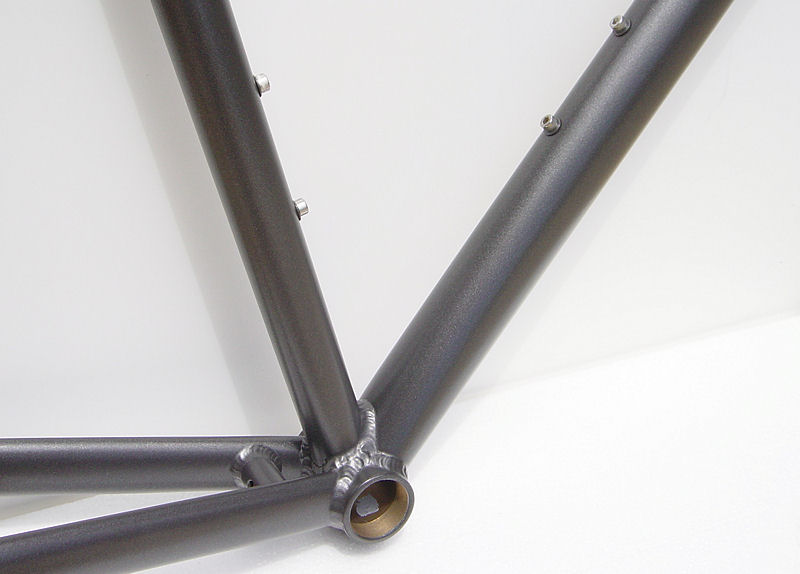

SquareTrade © AP6.0



|
|
Hello everybody, I have a very limited stock of Litech's rare and extraordinary magnesium road bike frames. Unfortunately it seems that Litech no longer produces frames, so the next closest option is to grab one from Paketa, their former US dealer, at a list price of $1,999.99 (some reviews here). Or, grab this one for much less and save enough for some components! I have several other frames listed that are unfinished, but this particular frame has already been professionally powder coated in a very sophisticated and classy looking anthracite grey. There may be a few minor blemishes from storage, but the frame is brand new and the finish is excellent. This frame measures about 55.25 cm by seat tube. The top tube measurement is about 53 cm, although some of these used a slightly sloping geometry which would make the "effective" top tube length a little longer. I do have a few different sizes available. By my bike scale this frames weighs in at an incredible 2.66 lbs. Compare that to titanium, carbon fiber, or any other exotic frame material up to ten times the price... not to mention the ride quality characteristics magnesium is known for. Derailleur hanger included. For PayPal payments, you must have a "confirmed" shipping address. Sold as is, all sales final.
Now that the basics are squared away, what's so exciting about this magnesium frames? If you haven't heard of magnesium frame technology, you're not alone. There are only a few companies in the world that know how to make magnesium frames, and even in the bike industry many people aren't familiar with them. Several years ago I was fortunate to discover the Litech magnesium frame I still use today for my custom XC race mountain bike. It was one of the best investments I've ever made. Since then I've learned as much as I can about these little-known gems. The first great feature of magnesium frames is an incredibly low weight, thanks to an excellent strength to weight ratio. It's almost hard to believe the first time you pick one up. Magnesium is lightest of all structural metals, lighter by volume than aluminum or titanium. A 17" frame weighs 2.91 lbs by my scale, comparable to or even below the spec weight of carbon or titanium frames costing thousands more. Yet because of the low density, this can be achieved without super thin tube walls, thus preserving dent resistance. The second equally important benefit is ride quality. Magnesium has a higher damping capacity than any other structural metal. Racers and other enthusiasts usually comment on the remarkable combination of bump absorption that provides a smoother ride, yet with the stiffness needed for solid power transfer. Even after years of riding, I'm still impressed with how fast mine accelerates. One dealer and magnesium fan described it as the closest option to the ride comfort of steel in a lightweight material. Others have said that magnesium gives the dampening of carbon without feeling dead, the liveliness of aluminum without the harsh vibration, etc. Sort of like getting the best of everything. These are same mechanical properties that have made magnesium a premium material in aerospace, race cars, and other performance applications. If you're wondering by now why magnesium frames aren't everywhere, the following additional information I've collected from product sheets, websites, and dealers may be helpful. This is accurate to the best of my knowledge, but some details I cannot verify.
|


